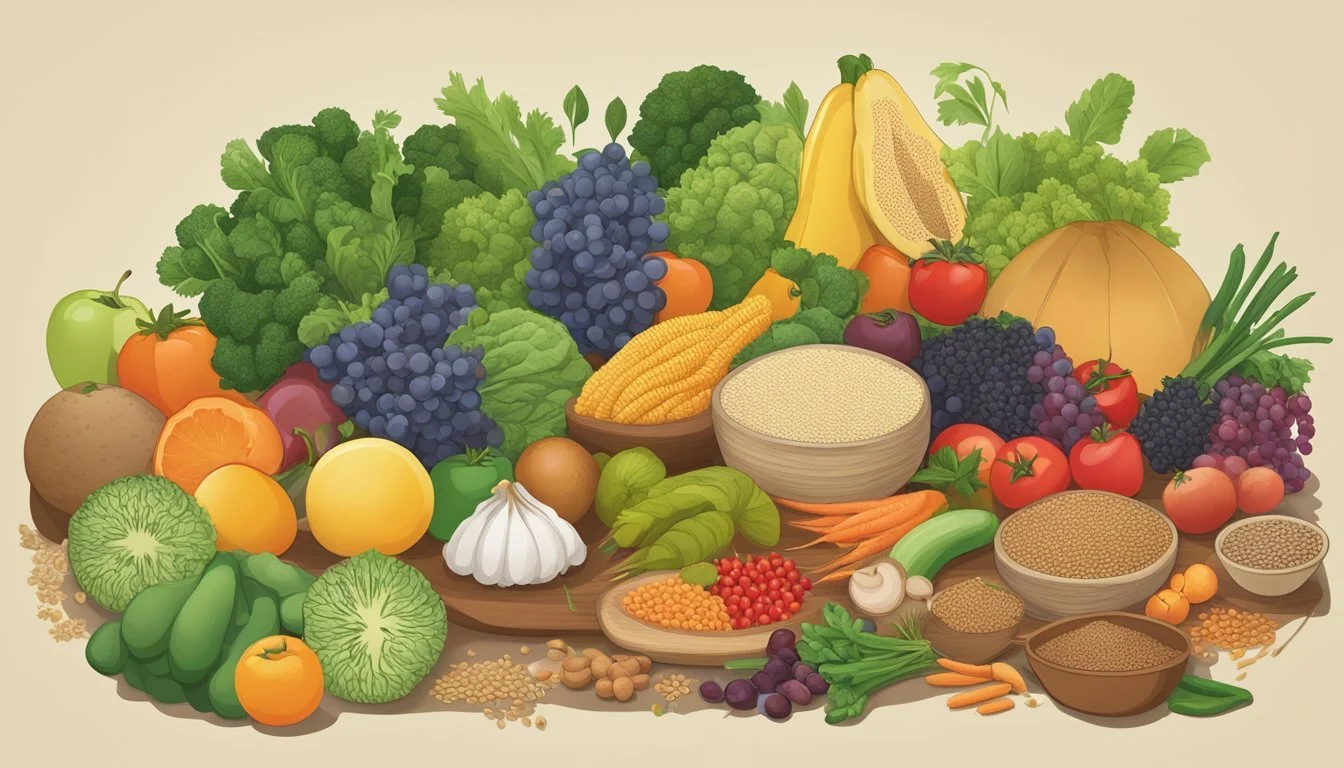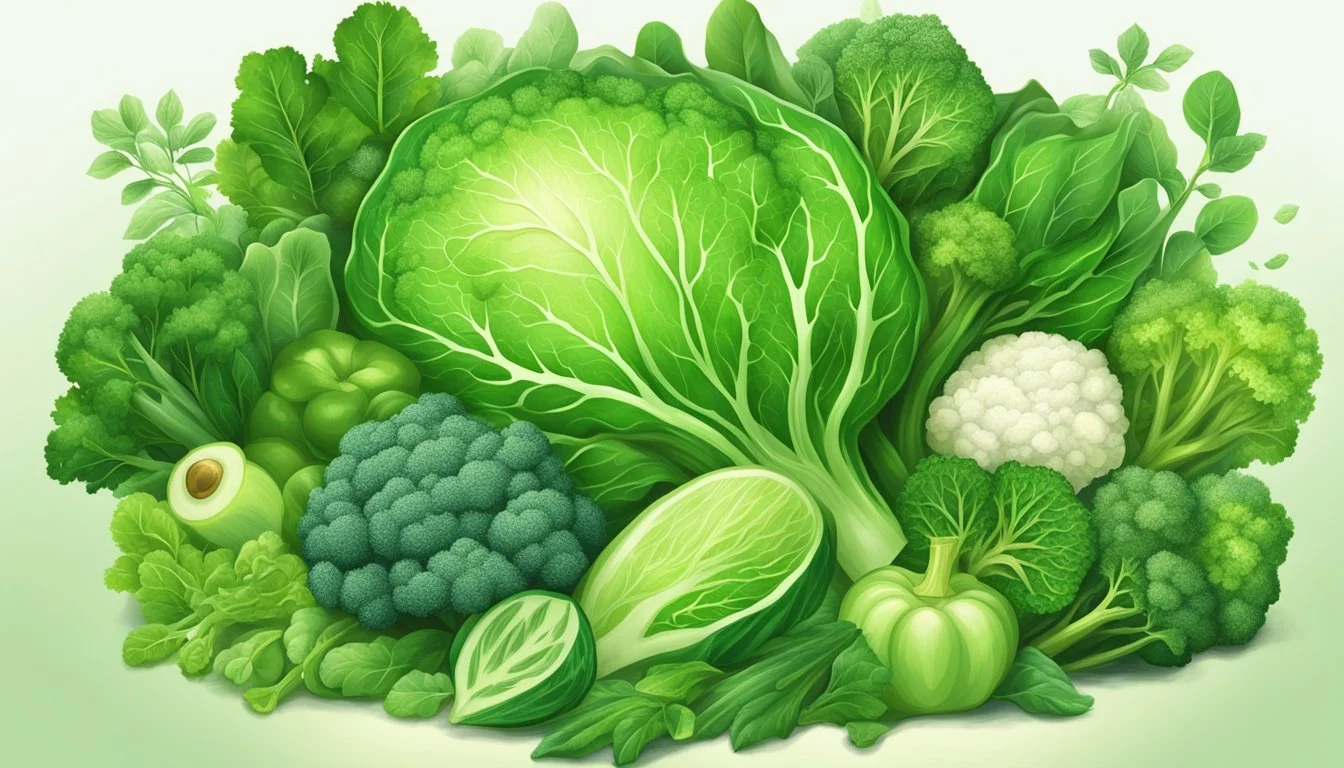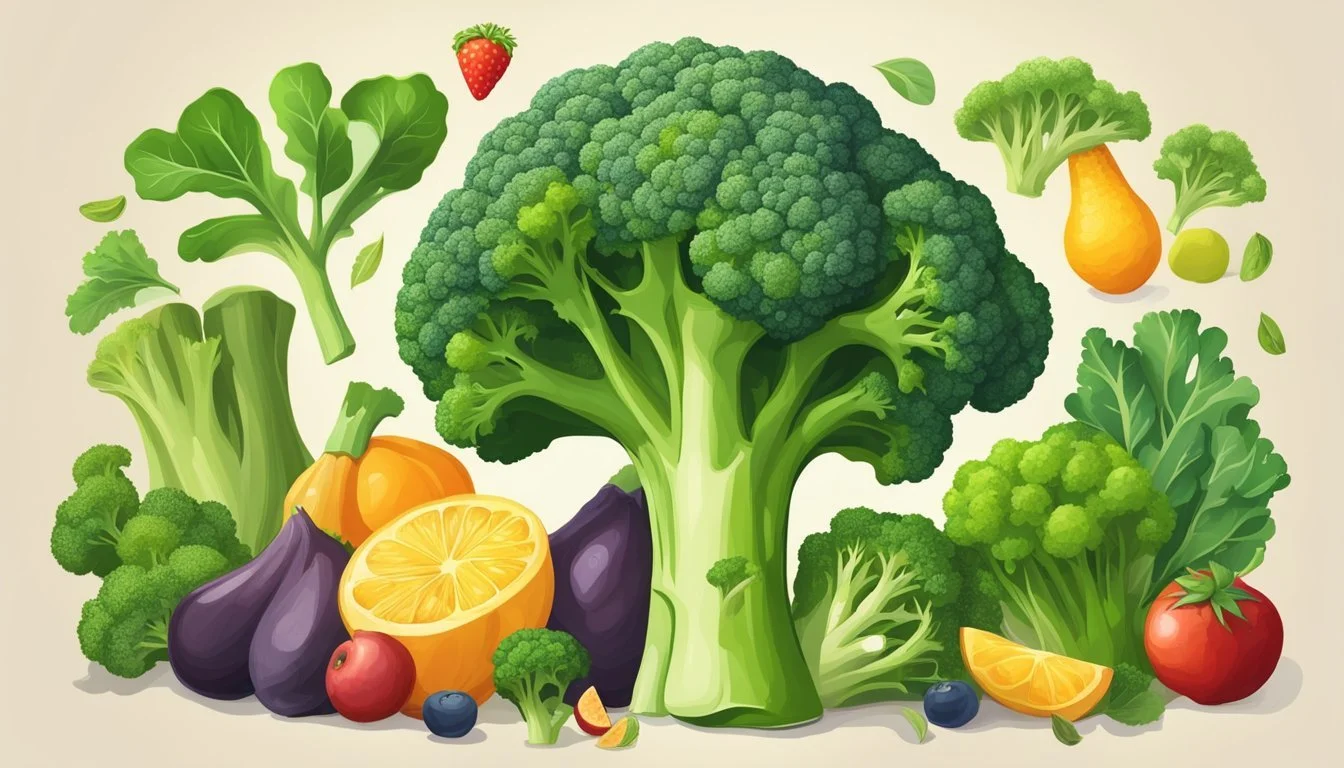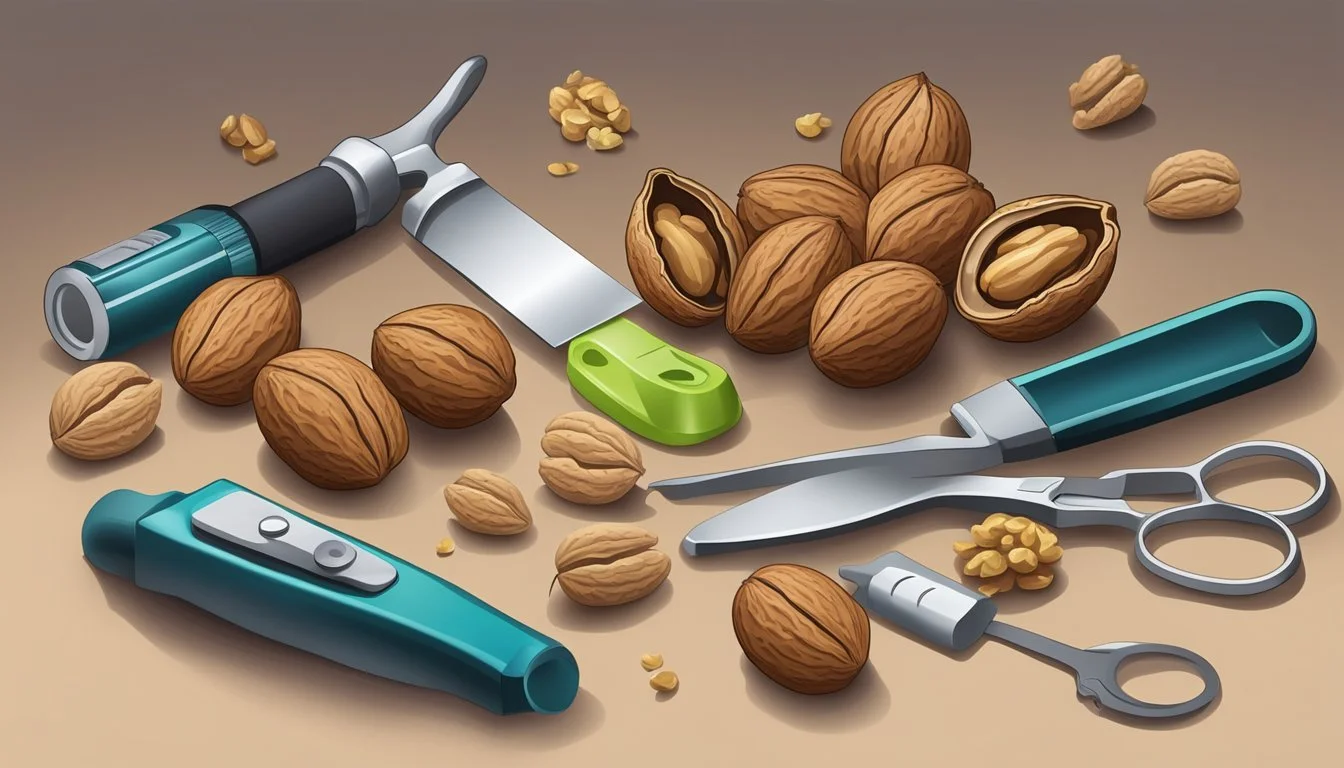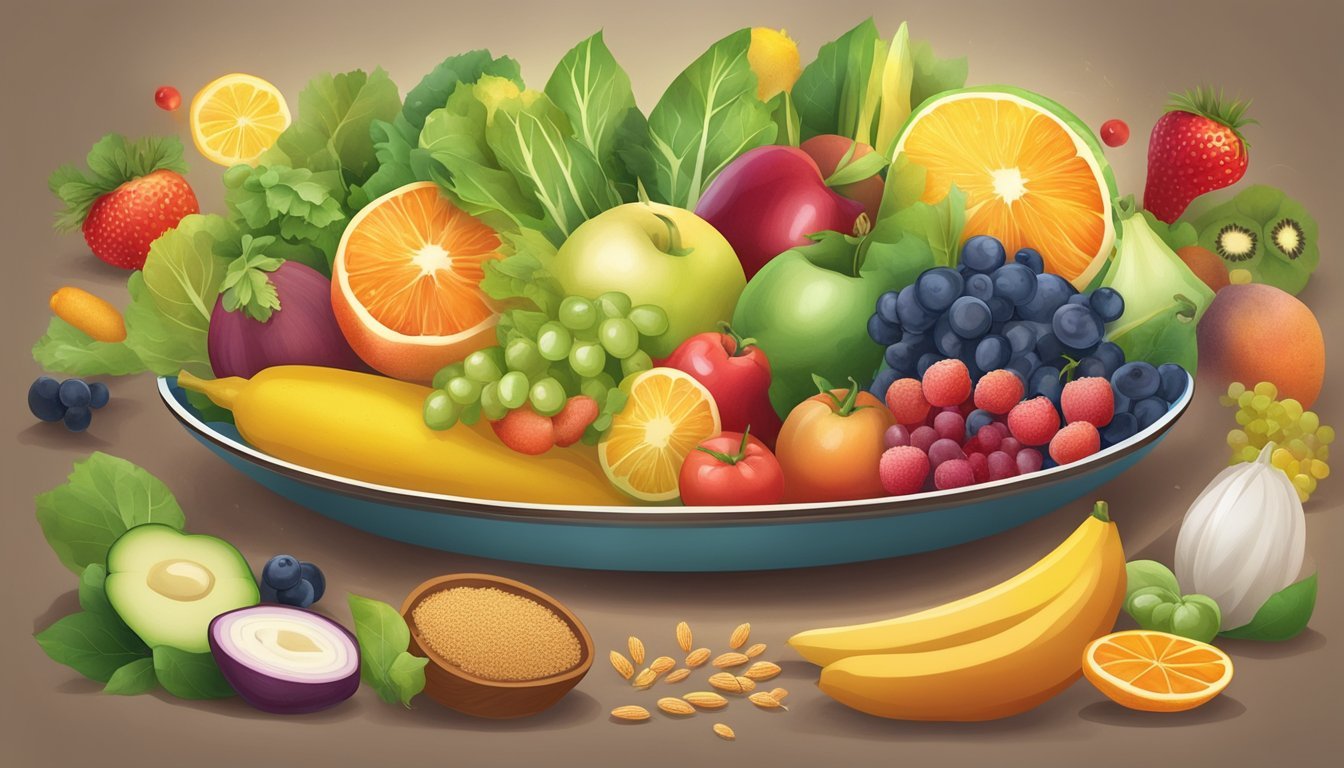Powerful Foods That Support Liver Repair and Regenerationegies for Optimal Recovery
The liver plays a critical role in the body's overall health, being responsible for detoxification, protein synthesis, and the production of biochemicals necessary for digestion. Diet is a key factor in maintaining liver health and aiding its repair process when damaged.
Consuming the right foods can significantly support liver function and promote its healing. Taking care of this vital organ through a balanced diet not only helps in preventing liver-related diseases but also enhances overall well-being.
1) Leafy Greens
Leafy greens, such as spinach, kale, and lettuce, are beneficial for liver health. They are rich in essential nutrients and antioxidants that support liver function.
These vegetables contain high levels of nitrates. Nitrates can help prevent the accumulation of fat in the liver. This can reduce the risk of nonalcoholic fatty liver disease (NAFLD).
Fiber found in leafy greens supports digestion. It also aids in the removal of toxins from the body. This helps the liver function more efficiently.
Antioxidants present in leafy greens fight inflammation. This reduces liver inflammation and promotes overall health. Including leafy greens in the diet can be an easy way to support liver health.
2) Fatty Fish (like Salmon)
Fatty fish, including salmon, sardines, tuna, and trout, are beneficial for liver health. These fish are rich in omega-3 fatty acids, which help reduce triglycerides and liver fat.
Omega-3 fatty acids have anti-inflammatory properties. They can decrease inflammation associated with fatty liver disease. This is crucial, as inflammation is a key factor in liver damage.
Consuming fatty fish regularly can also improve blood lipid profiles. This means lower levels of bad cholesterol (LDL) and potentially higher levels of good cholesterol (HDL). Better lipid profiles contribute to overall liver health.
Apart from omega-3s, fatty fish offers lean protein. Protein is essential for liver repair and regeneration. Unlike red meat, fatty fish does not contain high levels of saturated fat, which can exacerbate liver issues.
Including fatty fish in the diet two to three times a week is recommended. Cooking methods like grilling, baking, or steaming retain the nutritional benefits without adding unhealthy fats.
Incorporating fatty fish into meals can support liver function and assist in the repair process. This dietary choice is both practical and healthful.
3) Nuts and Seeds
Nuts and seeds play a vital role in supporting liver health. These small powerhouses are rich in nutrients that can help repair and protect the liver.
Brazil nuts are particularly beneficial due to their high selenium content. Selenium is an essential mineral that supports liver function and helps combat oxidative stress.
Walnuts are another excellent choice. They contain high levels of omega-3 fatty acids and antioxidants. These nutrients aid in reducing liver inflammation and promoting general liver health.
Additionally, seeds like chia and flaxseeds are loaded with fiber and omega-3 fats. These seeds can help reduce fatty liver conditions by supporting digestion and reducing inflammation.
Incorporating a variety of nuts and seeds into the diet can offer a diverse range of beneficial nutrients that support liver repair and health.
4) Olive Oil
Olive oil is renowned for its various health benefits, particularly its positive impact on liver health. Rich in antioxidants and healthy fats, olive oil helps protect the liver from inflammation and oxidative stress.
Regular consumption of olive oil can improve liver enzyme levels, which is crucial for liver repair and function. It also aids in reducing fat accumulation in the liver, a common problem that can lead to serious liver conditions if left unchecked.
Incorporating olive oil into a balanced diet is straightforward. Use it as a dressing for salads, drizzle it over vegetables, or incorporate it into cooking. Opting for extra virgin olive oil ensures the highest quality and potency of beneficial compounds.
This simple dietary inclusion can play a significant part in maintaining and repairing liver health, alongside other healthy lifestyle choices.
5) Green Tea
Green tea is a popular beverage known for its health benefits, including its positive impact on liver health. It contains antioxidants like catechins, which help reduce liver inflammation and oxidative stress.
Studies suggest that consuming green tea may lower the risk of liver diseases, including liver cancer. The beneficial compounds in green tea also support liver function by promoting healthy gut bacteria.
Regular consumption of green tea can assist in detoxifying the liver. Drinking around four cups per day is often recommended in scientific literature to see these benefits.
Incorporating green tea into one's daily routine can be a simple and effective way to support liver health. It provides a natural and accessible means to enhance overall well-being.
6) Garlic
Garlic is renowned for its potential benefits in liver health. Rich in selenium, it helps increase the action of antioxidants and assists in liver detoxification processes.
Arginine, an amino acid present in garlic, plays a crucial role in relaxing blood vessels. This can help ease blood pressure within the liver, promoting better blood flow and overall function.
Additionally, garlic contains Vitamin B6. This nutrient is essential in reducing homocysteine levels in the body, which can contribute to a healthier liver environment.
Incorporating garlic into the diet can thus contribute to liver repair and overall health by leveraging these key components.
7) Broccoli
Broccoli is a nutrient-dense vegetable known for its liver-protective properties. Rich in fiber, antioxidants, and vitamins, it supports overall liver health.
Cruciferous vegetables like broccoli contain sulforaphane, a compound that helps detoxify the liver. This compound activates enzymes that can help neutralize toxins.
Broccoli is also high in vitamin C. This antioxidant helps prevent oxidative stress, which can damage liver cells.
Eating broccoli regularly may aid in reducing the risk of developing fatty liver disease. Its anti-inflammatory properties are beneficial in mitigating liver inflammation.
Including broccoli in your diet is a simple way to support your liver's health and function. It can be steamed, roasted, or eaten raw.
8) Beetroot Juice
Beetroot juice is renowned for its potential benefits for liver health. Rich in natural pigments known as betalains, beetroot juice acts as a strong antioxidant. These antioxidants help to combat inflammation and support liver cell repair.
Studies have shown that beetroot juice may assist the liver in removing toxins from the body. Beetroot juice promotes bile production, which is crucial for liver function. It also activates liver enzymes necessary for breaking down toxins.
Beetroot is naturally high in nitrates, which can improve blood flow and reduce oxidative stress. These properties support the overall well-being of the liver, aiding it in its detoxifying role. Easy to prepare at home, raw beets can be juiced for a nutrient-rich drink.
In addition, beetroot juice provides essential vitamins and minerals. This makes it a healthy dietary choice for supporting liver health. Regular consumption of beetroot juice can be a simple, natural method to promote liver function and enhance detoxification processes.
9) Avocado
Avocado is a highly beneficial food for liver health. Rich in monounsaturated fats, avocados help in maintaining healthy cholesterol levels. This can reduce the burden on the liver, making it easier for the organ to function optimally.
Avocados are also high in antioxidants. These compounds protect the liver from cellular damage caused by free radicals. The presence of vitamins C and E further supports the liver’s detoxification process.
Additionally, avocados contain glutathione. This powerful antioxidant assists in detoxifying harmful substances. Glutathione is essential for liver repair and regeneration.
The fruit is rich in potassium as well. Potassium helps maintain fluid balance, which is crucial for metabolic functions. Adequate potassium levels can also prevent the build-up of fats in the liver.
Incorporating avocados into the diet can be simple and enjoyable. They can be added to salads, smoothies, or used as a spread. This makes it easy to enjoy their liver-protective benefits regularly.
10) Walnuts
Walnuts are highly beneficial for liver health due to their rich nutritional profile. They contain the amino acid arginine, which plays a crucial role in detoxifying ammonia in the body. This is important because excessive ammonia can be harmful to the liver.
In addition to arginine, walnuts are packed with glutathione and omega-3 fatty acids. Both of these compounds contribute significantly to liver detoxification processes. Glutathione is a powerful antioxidant that combats oxidative stress, while omega-3 fatty acids reduce inflammation.
Walnuts also offer a variety of vitamins and minerals. These include vitamin E, which has antioxidant properties, and magnesium, which aids in biochemical reactions in the liver. These nutrients work together to support overall liver function and health.
Regular consumption of walnuts may help protect the liver from damage caused by toxins and improve the liver's regenerative capacity. Including walnuts in one's diet can be a simple yet effective way to promote liver health.
How Nutrition Affects Liver Health
Nutrition plays a significant role in repairing and maintaining liver health by providing essential nutrients and antioxidants. These elements work together to enhance liver function and protect it from damage.
Essential Nutrients for Liver Repair
The liver requires a range of nutrients to perform its detoxifying tasks efficiently. Proteins are vital as they help repair liver cells. Sources include lean meats, fish, and legumes. Another important component is fiber, which aids in digestion and elimination of toxins. Foods rich in fiber include vegetables, beans, and whole grains.
Omega-3 fatty acids are known for their anti-inflammatory properties and can aid in reducing liver fat. These can be found in fish like salmon and flaxseeds. Additionally, vitamins such as B, C, and E, along with minerals like zinc and selenium, support various liver functions and promote healing.
Role of Antioxidants in Liver Function
Antioxidants are substances that prevent oxidative damage to liver cells. Glutathione, a powerful antioxidant produced in the liver, plays a crucial role in detoxification. Foods such as spinach, avocados, and asparagus boost glutathione levels.
Vitamin C acts as an antioxidant and supports the immune system. Citrus fruits, berries, and bell peppers are excellent sources. Vitamin E is another key antioxidant that helps reduce liver inflammation. Nuts, seeds, and green leafy vegetables are rich in vitamin E.
Incorporating these nutrients and antioxidants into one’s diet can significantly benefit liver health and contribute to its repair and maintenance.
Dietary Strategies for Liver Repair
Implementing a liver-friendly diet involves choosing foods that support liver function and avoiding those that can cause damage. This section outlines specific foods to include and those to avoid.
Incorporating Liver-Friendly Foods
Grapefruit: Rich in antioxidants, grapefruit can help reduce inflammation and protect liver cells from damage. It contains naringenin and naringin, both of which help improve liver health.
Blueberries and Cranberries: Packed with antioxidants and anthocyanins, these berries can increase immune cell response and antioxidant enzymes in the liver, potentially reducing the risk of liver damage.
Coffee: Regular consumption of coffee has been linked to lower liver stiffness and may protect against liver diseases. It helps reduce liver enzyme levels and lowers the risk of chronic liver disease.
Olive Oil: High in healthy fats, olive oil can improve liver enzyme levels and reduce liver fat accumulation. Its antioxidant properties also contribute to liver health.
Nuts and Seeds: Rich in vitamin E and healthy fats, nuts and seeds like almonds and chia seeds may help protect the liver from damage and oxidative stress.
Avoiding Harmful Foods
Sugary Foods and Drinks: Consuming high amounts of sugar can lead to fatty liver disease. Limiting processed sugars and sugary beverages can reduce this risk.
Alcohol: Excessive alcohol consumption is a leading cause of liver disease. Reducing or eliminating alcohol intake can significantly improve liver function.
Trans Fats: Found in many fried and baked goods, trans fats can increase liver fat and lead to liver inflammation. Avoiding foods containing hydrogenated oils can help protect the liver.
Processed Meats: High in saturated fats and preservatives, processed meats can negatively impact liver health. Opting for lean meats and plant-based protein sources can be beneficial.
Salt: High salt intake can lead to liver damage. Reducing salt in the diet, including in processed foods, can aid in liver repair.
Each of these strategies contributes to maintaining a healthy liver and supporting its ability to repair and regenerate.
Understanding the Liver's Healing Process
The liver's ability to regenerate allows it to repair itself after damage. Lifestyle changes, including diet and habits, significantly influence the healing process.
Phases of Liver Regeneration
Liver regeneration occurs in three phases: initiation, proliferation, and termination.
Initiation: This phase involves the activation of liver cells in response to injury. Signals are sent to initiate repair mechanisms.
Proliferation: During this phase, liver cells rapidly divide to replace damaged tissue. Nutrients like amino acids and vitamins are crucial to support cell division.
Termination: In this final phase, cell division slows down and returns to normal. Fully functional tissue replaces the damaged areas.
These phases ensure the liver recovers function effectively while maintaining overall organ structure.
Impact of Lifestyle Changes on Liver Health
Lifestyle modifications greatly impact liver health. A diet rich in fruits, vegetables, and healthy fats supports liver function.
Foods like garlic and turmeric activate liver enzymes and regenerate cells. Blueberries and cranberries help reduce inflammation and oxidative stress. Proper hydration also facilitates toxin removal.
Regular exercise improves blood flow and reduces fatty deposits in the liver. Avoiding alcohol and smoking prevents further liver damage, allowing it to heal more efficiently.

